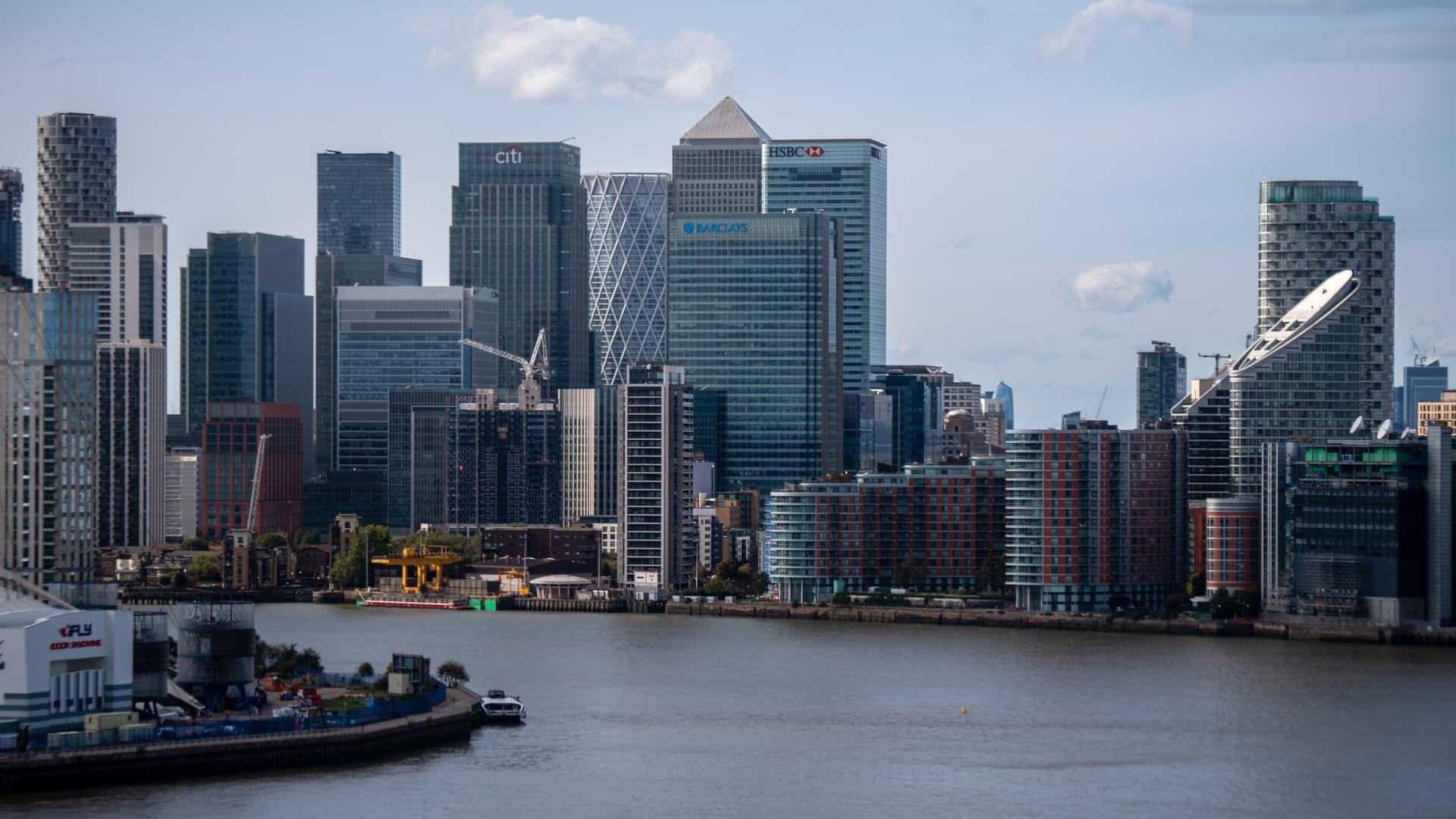UK inflation holds steady for September after Bank of England pauses rate hikes

Skyscrapers in the Canary Wharf financial, business and shopping district in London, UK.
Bloomberg | Bloomberg | Getty Images
LONDON — U.K. inflation came in at 6.7% in September, slightly ahead of expectations and unchanged from the previous month.
On a monthly basis, the headline consumer price index increased by 0.5%, in line with expectations. Economists polled by Reuters had projected an annual rate of 6.6% and a monthly climb of 0.5%.
The largest downward contributions came from food and non-alcoholic beverages, whose prices fell month-on-month for the first time since September 2021, the Office for National Statistics said Wednesday. Rising fuel prices made the largest upward contribution to the headline rate.
Core CPI — which excludes volatile food, energy, alcohol and tobacco prices — came in at 6.1% year-on-year, down from 6.2% in August, but slightly above a consensus projection of 6%.
“As we have seen across other G7 countries, inflation rarely falls in a straight line, but if we stick to our plan then we still expect it to keep falling this year,” U.K. Chancellor of the Exchequer Jeremy Hunt said in a statement.
“Today’s news just shows this is even more important so we can ease the pressure on families and businesses.”
For August, the U.K. consumer price index surprised with a dip to 6.7%, below expectations, which sparked the Bank of England to end a run of 14 straight interest rate hikes.
The bank had been hiking rates consistently since December 2021 in a bid to rein in inflation, taking its main policy rate from 0.1% to a 15-year high of 5.25% in August.
The market is pricing around a 77% chance that the Bank holds rates steady again at its next meeting on November 2nd.
‘Higher for longer’ interest rates
Marcus Brookes, chief investment officer at Quilter Investors, said that the U.K.’s “slow and steady” path back towards the Bank of England’s 2% inflation target was unlikely to accelerate any time soon.
“With geopolitical tensions rising, energy and petrol prices are once again on the way up and inflationary pressures risk hitting an economy that has gone through a painful cost of living crisis. For now, the higher for longer interest rate narrative will continue to persist,” he said Wednesday in an emailed note.
Though wages are now rising faster than prices, Brookes said the pain for households from the Bank’s previous monetary policy tightening is “yet to be truly felt” and suggested that policymakers may need “at least another rate rise” in light of the Wednesday reading.
“The question becomes when they have done enough, but with inflation taking so long to come back down to more palatable levels, that is a difficult question to answer and risks policy misstep,” Brookes said, adding that while the Bank of England has “done enough,” the institution “will not want to appear to be doing nothing” in the face of persistently high inflation.
Official data out on Tuesday showed a moderation in wage prices and a loosening of labor market conditions — both closely watched metrics for the Bank of England, as it assesses how deeply inflation may entrench itself in the British economy.
Hetal Mehta, head of economic research at St James’s Place, said that, when combined with the Tuesday labor market print, the CPI reading “isn’t the significant upside surprise that might make the BoE reconsider staying on hold at its next meeting in November.”









